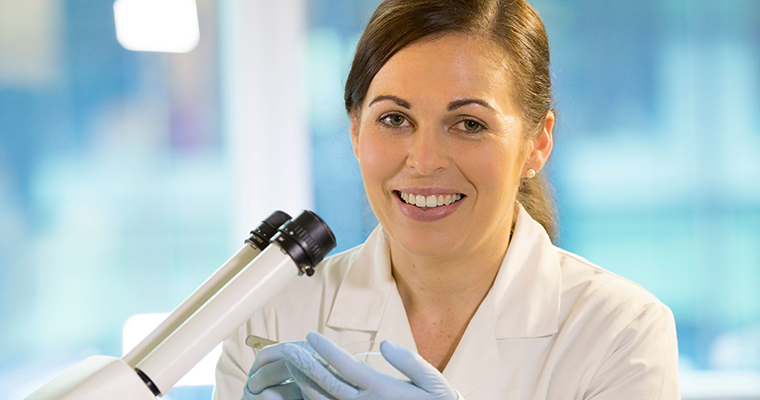Cabrini Institute colorectal research makes international headlines
15/07/2020

When it comes to research into the treatment of rectal cancer, Cabrini Institute is making headlines.
Cabrini Institute Research Fellow Dr Rebekah Engel, and a team of colleagues, have spent the past 18 months delving into data to better understand whether almost 20 per cent of rectal cancer patients could avoid having life-changing surgery.
In May, the research, Predictive factors of complete pathological response in patients with locally advanced rectal cancer, was published in the International Journal of Colorectal Disease.
Dr Engel said the standard of care for patients undergoing treatment for locally advanced rectal cancer typically involved radiation and chemotherapy prior to radical surgery.
She said often rectal surgery had a significant impact on people’s quality of life, with patients experiencing sexual and urinary dysfunction, defecation difficulties and colostomy complications.
“There’s a number of patients that have a complete (successful) response after that treatment (chemotherapy and radiotherapy) and are in remission,” Dr Engel said.
“That’s 20 per cent of patients, but at present they undergo surgery anyway. We are trying to work out if there are particular factors that contribute, and if so, can we put them on a watch and wait program so that they could be managed with a non-surgical approach?”
She said of the 354 patients who were part of the study, 69 had a complete response to the chemotherapy and radiotherapy treatment and they identified a number of factors including the type of tumour, and whether the patient’s underwent a short or long course of treatment, were significant in the outcome.
“The patients who underwent a short course were less likely to achieve a complete response,” Dr Engel said.
“Our study is the first to report that the degree of tumour fixity, a measure describing the involvement or spread into surrounding anatomical structures, is also a predictive factor of a complete response. If the tumour was mobile, the patient was likely to have a better response.
“The idea is that the outcomes from this study may allow us to build a model and select patients who may be suitable for non-surgical management of their rectal cancer,” she said.
“If we can identify patients with these favourable features and we observe no residual tumour at the completion of their treatment, we would save them from undergoing surgery and these associated issues. Not only does it affect them physically, but also their self-esteem and quality of life.”
Dr Engel said the research also led into her current work, the Human Organoid research project, funded by Cabrini Foundation, which takes tissue biopsies from patients diagnosed with rectal cancer and grows miniaturised versions of the patient’s own tumour, called ‘organoids’ in the laboratory.
“We mimic the treatment that the patients receive in the clinic and measure response in these mini-tumours to determine if we can predict exactly how a patient will respond,” Dr Engel said.
“Our aim is to use it as a guide to inform their treatment going forward. It’s for the greater good, and it’s something I’m really excited about.”
For more information on research projects at Cabrini, go to cabrini.com.au/research-and-education/research-programs